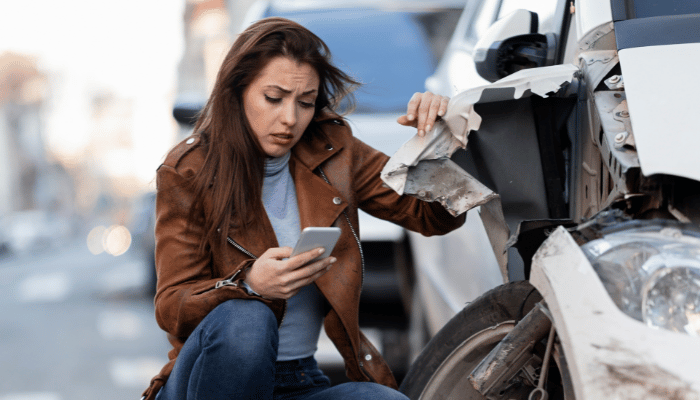Car accidents can leave emotional scars that are just as significant as physical injuries. One such psychological aftermath is Post-Traumatic Stress Disorder (PTSD). While we often associate PTSD with combat veterans, it can affect anyone who has experienced a traumatic event, including car crash survivors.
Understanding PTSD: It Can Happen to Anyone
What Is PTSD?
Post-Traumatic Stress Disorder is a mental health condition that can develop after a person experiences or witnesses a traumatic event. In the context of car accidents, it can result from the shock, fear, and helplessness often associated with such incidents.
Symptoms of PTSD:
- Flashbacks or nightmares of the accident
- Intense anxiety or emotional distress triggered by reminders of the crash
- Avoidance of places or situations related to the accident
- Negative changes in mood or thinking
- Heightened alertness or jumpiness
Coping with PTSD: Finding Your Path to Healing
Seek Professional Help
If you suspect you have PTSD after a car accident, don’t hesitate to seek professional help. Therapists, psychologists, and psychiatrists can provide valuable guidance and treatment options tailored to your needs. They may recommend therapies such as cognitive-behavioral therapy (CBT) or eye movement desensitization and reprocessing (EMDR).
Build a Support System
Lean on friends and family for support. Talking about your experiences with trusted individuals can help alleviate feelings of isolation and anxiety. Don’t hesitate to share your feelings and experiences with those close to you.
Self-Care
Engage in self-care activities that promote relaxation and reduce stress. This can include exercise, meditation, deep breathing exercises, and hobbies that bring you joy.
Healing Takes Time: Patience is Key
Accept Your Emotions
It’s essential to acknowledge and accept the emotions that come with PTSD. You may feel anger, sadness, guilt, or fear, and that’s okay. Remember that healing is a process, and it’s perfectly normal to experience a range of emotions.
Avoid Triggers
Identify and avoid triggers that worsen your symptoms. This might mean steering clear of the accident site, not watching graphic accident footage, or limiting exposure to distressing news.
Moving Forward: Reclaiming Your Life
Set Realistic Goals
Work with your healthcare provider to set achievable goals for your recovery. Progress may be slow, but every step forward counts.
Advocate for Yourself
If you’re dealing with PTSD due to a car accident, it’s crucial to advocate for your rights, including seeking compensation for your emotional suffering if necessary. An attorney experienced in personal injury cases can guide you through the legal process.
Connect with Support Groups
Consider joining a support group for individuals dealing with PTSD after car accidents. Sharing your experiences with others who have gone through similar situations can provide a sense of community and understanding.
Let the Experts Help You After a Car Accident
Recovering from PTSD after a car accident is a journey that requires patience, self-compassion, and professional support. It’s essential to remember that healing is possible, and you are not alone. At Stridewell, we’re committed to helping accident survivors on their path to recovery, whether it’s physical or emotional. We can work with you to refer you to mental health professionals and can help you find the treatment you need for any injuries sustained in an accident. If you or a loved one is struggling with PTSD after a car crash, reach out to us for guidance and support.
read article


